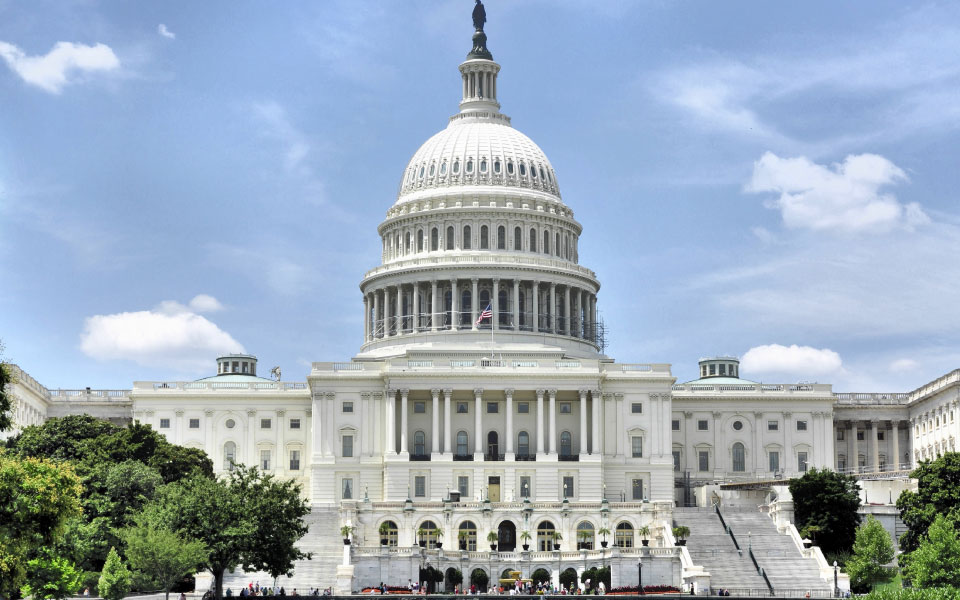Introduction
The U.S. international tax framework is on the verge of significant change under proposed language in the One Big Beautiful Bill Act. Proposed Section 899, entitled “Enforcement of Remedies Against Unfair Foreign Taxes,” is intended to counter what U.S. lawmakers describe as “unfair foreign taxes,” including undertaxed profits, digital services taxes (DST), and diverted profits tax regimes increasingly imposed by foreign jurisdictions. This article summarizes the far-reaching implications of these tax proposals for U.S. and foreign taxpayers involved in cross-border transactions.
The Senate version of proposed Section 899 has some notable changes from the House version
- Delays implementation by one year;
- Redefines “unfair foreign tax” to mean an extraterritorial tax or a discriminatory tax, with significant changes to the application of increased tax rates;
- Defines “extraterritorial tax” as any tax imposed under an Undertaxed Profits Rule (UTPR);
- Defines “discriminatory tax” as any digital services tax (DST);
- Includes catch-all language built into the definition of discriminatory tax that allows Treasury the discretion to add to the list of unfair foreign taxes other regimes that it perceives to be abusive;
- Provides that increased tax rates would only apply to countries that impose extraterritorial taxes (notably, an undertaxed profits regime (UTPR); with respect to Base Erosion and Anti-Abuse Tax (BEAT), applicable tax rates can only be increased in annual 5% increments to a maximum of 15% (maximum increase is calculated by reference to an applicable treaty rate); and
- Clarifies the potential application to increase taxation of items of income that benefit from an exemption, exception, or zero rate of tax under a tax treaty (except to the extent a treaty provides an exemption from branch profits tax).
Implementation Timeline and Key Changes
- Effective Date: The Senate version of the Bill delays the implementation of Section 899 until Jan. 1, 2027, for calendar-year taxpayers.
- Scope of Rate Increase: The increase in U.S. tax rates under Section 899 applies only to countries that impose a UTPR. Unlike the original House bill, the Senate version does not apply these increased rates to countries that merely have a digital services tax (DST).
- New Base Erosion and Anti-Abuse Tax (BEAT) Provisions for DSTs: Countries imposing a DST are not covered by the Section 899 rate increase, but their applicable persons may be subject to new, more stringent BEAT rules.
- Rate Cap: The additional tax under Section 899 is capped at 15% above the applicable statutory or treaty rate (reduced from 20% in the House version).
Who and What is Affected?
- Applicability: Proposed Section 899 applies to all types of cross-border transactions, not just to banks.
- “Applicable Person” Defined: Similar to the House version, the Senate version provides that an applicable person is any individual (not a U.S. citizen or U.S. tax resident) who is a tax resident of an offending foreign country, any foreign corporation (not U.S. owned) that is a resident of an offending foreign country, any private foreign corporation if it is more than 50% owned (by vote or value) directly or indirectly by residents of an offending foreign country, and certain foreign trusts and other entities that the Treasury Secretary may determine by the concerning such an offending foreign country.
- Triggering Events: If an applicable person in a “discriminatory foreign country” (a country with UTPR, DST, or DPT regimes) engages in activities that result in U.S.-sourced Fixed, Determinable, Annual, or Periodical income (FDAP) or effectively connected income (ECI) from a U.S. trade or business, the U.S. may increase the withholding or federal income tax rate by 5% per year, subject to the overall cap.
- Targeted Tax Regimes:
- Undertaxed Profits Regimes (UTPR)
- Digital Services Taxes (DST)
- Diverted Profits Tax Regimes (DPT)
Countries With “Unfair Foreign Taxes”
Known countries with one or more of these regimes in local law include: Australia, Austria, Belgium, Canada, France, Germany, Ireland, Italy, Japan, Netherlands, Spain, United Kingdom, and many others (see bill text for a comprehensive list).
New BEAT Provisions for U.S. Corporations
- BEAT Expansion:
- If a U.S. corporation is more than 50% owned by an applicable person, new BEAT provisions may increase the corporation’s U.S. income tax.
- The new rules apply to corporations of any size, including those not previously subject to BEAT under Section 59A.
- Key Changes Under New BEAT:
- BEAT tax increased to 12.5%; the Senate bill increases the rate to 14% starting in 2026
- Further restrictions on allowable credits.
- Broadened definition of “base erosion payment,” now including certain payments already subject to U.S. withholding tax.
- Elimination of the exception for the “service cost method”; under the Senate version, significant exemptions from the old BEAT would not apply, including exceptions for cost of goods sold, payments under the service cost method, and payments subject to full withholding tax.
- These changes could significantly increase the tax liability for affected companies and result in more intercompany service payments being subject to the new BEAT rules.
Exclusions and Carve-Outs
- CFCs Excluded: Controlled Foreign Corporations (CFCs) are generally excluded from the definition of applicable persons under Section 899.
- Portfolio Interest Exemption Unchanged: The portfolio interest exemption rules of Sections 871(h) and 881(c)(2) remain intact and are not affected by Section 899 as drafted.
Summary
Proposed Section 899 reflects an assertive U.S. stance against perceived discriminatory tax regimes adopted abroad. These rules, slated to take effect in 2027 in the Senate version, will apply to a wide range of cross-border transactions and impose substantial compliance requirements on multinationals with connections to countries that impose UTPR, DST, or DPT regimes. Notably, the expansion of BEAT and the broad definition of “applicable persons” mean that more taxpayers will fall under these provisions. We note here that the text of the draft Senate and House legislation may be subject to changes during the reconciliation process. We will follow up with further guidance regarding the final legislative language.
If you have questions regarding Section 899 or other matters related to foreign taxes, please contact our international tax team members.
© Copyright CBIZ, Inc. All rights reserved. Use of the material contained herein without the express written consent of the firms is prohibited by law. This publication is distributed with the understanding that CBIZ is not rendering legal, accounting or other professional advice. The reader is advised to contact a tax professional prior to taking any action based upon this information. CBIZ assumes no liability whatsoever in connection with the use of this information and assumes no obligation to inform the reader of any changes in tax laws or other factors that could affect the information contained herein. Material contained in this publication is informational and promotional in nature and not intended to be specific financial, tax or consulting advice. Readers are advised to seek professional consultation regarding circumstances affecting their organization.
“CBIZ” is the brand name under which CBIZ CPAs P.C. and CBIZ, Inc. and its subsidiaries, including CBIZ Advisors, LLC, provide professional services. CBIZ CPAs P.C. and CBIZ, Inc. (and its subsidiaries) practice as an alternative practice structure in accordance with the AICPA Code of Professional Conduct and applicable law, regulations, and professional standards. CBIZ CPAs P.C. is a licensed independent CPA firm that provides attest services to its clients. CBIZ, Inc. and its subsidiary entities provide tax, advisory, and consulting services to their clients. CBIZ, Inc. and its subsidiary entities are not licensed CPA firms and, therefore, cannot provide attest services.







